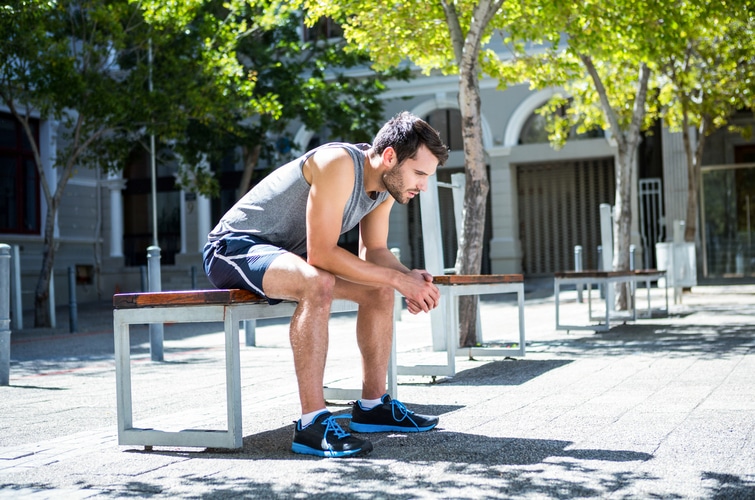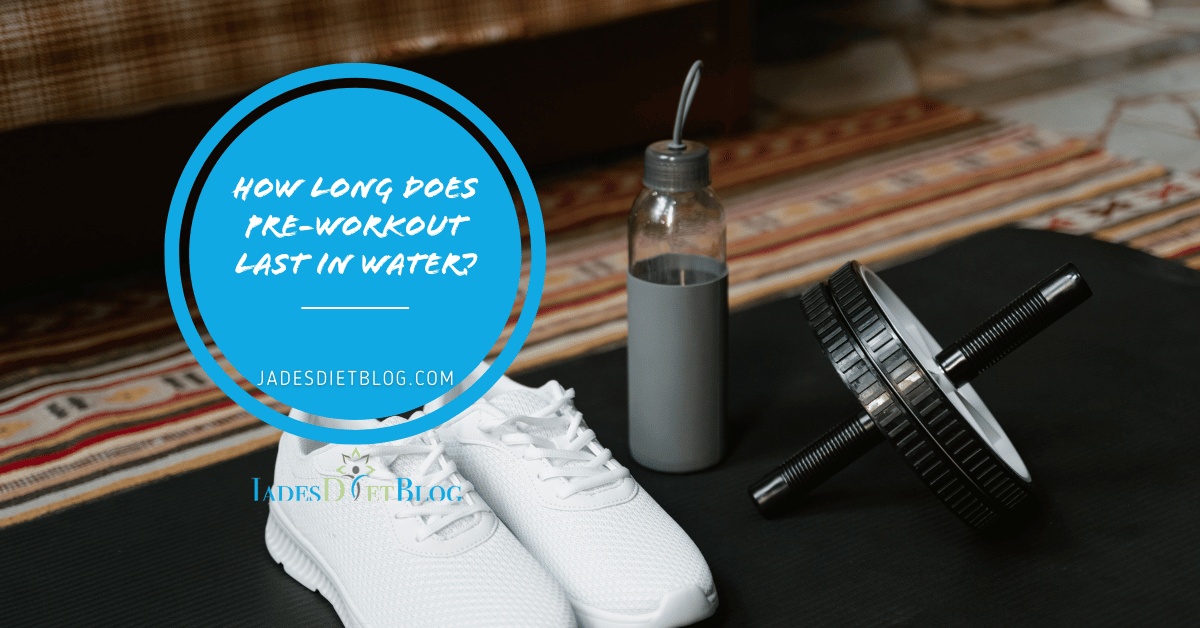Physical activity such as working out is good for you — in more ways than one. A regular exercise routine can improve your heart health and help you lose weight. But it’s not all rainbows and sunshine when it comes to sweating it out at the gym, track, or yoga studio.
If you have experienced this feeling before, you might have been left wondering why you get lightheaded after a workout. And while getting dizzy or lightheaded during exercise is fairly common, that doesn’t make it any less weird.
Luckily, there are several potential explanations for why you get lightheaded after a workout. Here are some of the most likely culprits and tips to keep these side effects from happening again.
Contents
What does lightheadedness after a workout mean?
Lightheadedness, also known as dizziness, happens when your brain isn't getting enough blood. During exercise, your body diverts enough blood flow away from your internal organs (like your stomach and intestines) and toward your muscles.
This is so you can generate more power and strength when lifting weights, doing yoga, running, etc. This is also why your heart rate tends to increase during a workout. This is why you might experience lightheadedness or dizziness while exercising.
This can cause you to feel warmer while working out, as well as make you sweat more. If you're dehydrated while working out, your blood can get too thick, which could cause dizziness.
Reasons Why You Feel Lightheaded After A Workout
Dehydration
Water is essential to human health and fitness. But it’s easy to forget how important water is when you’re focusing on your workout. When you feel dizzy during exercise, it could be because you’re dehydrated.
The more intense the exercise is, the more water you’ll need to hydrate your body. If you drink water before your workout, you’ll be well hydrated and less likely to experience dizziness from dehydration.
Water doesn’t just hydrate your muscles, though. It’s essential for your brain and nervous system, too! If you’re dehydrated, your brain may not get the blood flow it needs, leading to dizziness. You can prevent this by hydrating before, during, and after your exercise.
Low blood pressure
If you’ve noticed that you feeling lightheaded after working out, you may have low blood pressure. People with low blood pressure usually feel dizzy when standing up, but they may also feel dizzy after exercising. Some also suffer postural hypotension because of low blood pressure.
Low blood pressure is often genetic, but it can also be caused by dehydration, not eating enough, being pregnant, and taking certain medications. If you think you may have low blood pressure, see your doctor to see what you can do about it and avoid any condition like postural hypotension.
Low blood sugar
Another common cause of dizziness is low blood sugar. People who are diabetic or who have a very low-carb diet may have low blood sugar when they exercise.
You can prevent low blood sugar by eating a balanced diet with enough protein and carbohydrates. If you’re still feeling dizzy after eating a snack, it’s time to stop working out.
Exercise is important for everyone, but it’s also important to do it safely. Your doctor can help you figure out the best way to manage your blood glucose, diabetes, and exercise.
Exhaustion and fatigue

Exhaustion, which is caused by a lack of sleep, can lead to dizziness. Most people need between seven and nine hours of sleep per night. If you’re not getting enough sleep, your body won’t have enough energy to sustain itself.
Exhaustion can also cause you to get sweaty and flushed while you exercise, which can lead to dizziness if you don’t take a break. Getting enough sleep can help prevent exhaustion and make sure you have the energy to push through a workout.
Breathlessness and hyperventilation
If you’ve ever had trouble breathing or shortness of breath during a workout, you’re not alone. This is known as dyspnea and is a common side effect of strenuous exercise. The more intense your exercise is, the more you breathe.
If you’re breathing too heavily (also known as hyperventilating), it can cause you to feel dizzy. If you’re breathing heavily, try taking a break. Relax your muscles, slow your breathing, and focus on your breath. You can also try some breathing techniques to avoid shortness of breath.
Over-Exertion During Workout
If you push yourself too hard during a workout or maybe do an intense exercise, you may feel dizziness after exercise and your body temperature rises as a result. This is similar to overexerting yourself while lifting weights, running too far, or doing other types of exercises.
If you’ve been exercising for a while, you probably know how to push yourself. A surge of adrenaline resulting from overexertion when you are not in good physical condition can cause blood pressure and heart rate to rise, resulting in a heart attack or sudden death.
If the lightheadedness is caused by intense exercise and overexertion, it’s probably best to stop your exercise for the day. Seek medical attention if needed. Exercise is supposed to make you feel better, not worse!
Low body temperature
A low body temperature is another common cause of dizziness during and after exercise. You may notice that you get dizzy while exercising even though the weather is warm enough.
This may be due to you having a low body temperature. If you exercise in the evening after your body temperature has already started to fall, you may experience dizziness due to a low body temperature.
If you notice this is happening to you, you can try to get your internal temperature back up by drinking something warm. You can also try putting on a warm sweater or blanket.
Things You Can Do To Feel Relief
Consider taking B Vitamins or other supplements that can combat the effects of working out
You might want to consider taking B vitamins. B vitamins are essential for helping your body use more oxygen, which can help prevent lightheadedness. Other supplements can help reduce the effects of working out.
For example, magnesium can reduce muscle cramps after a workout and can help prevent lightheadedness. You also might want to try eating more potassium-rich foods like avocados, bananas, and even broccoli because potassium can help prevent muscle cramps as well.
Remember to take only prescription medications. You can ask for professional medical advice.
Stay hydrated during your workout

Staying hydrated is one of the best things you can do to prevent feeling dizzy during your workout. When your body doesn’t have enough water, your blood pressure will rise, which causes your heart to have to work harder.
The result is that your blood pressure might be too high, which can cause you to feel dizzy. . If you’re working out heavily, you should be drinking 10 cups of water a day.
Try to drink water before, during, and after your exercise to stay hydrated. You can also try other beverages such as sports drinks.
It is advisable to consume one cup of water four hours before exercising. After exercising, drink as much water as needed to replenish the water your body lost.
Don’t exercise on an empty stomach.
This is one of the most common reasons why people experience lightheadedness during or after a workout. When you don’t eat enough carbohydrates before your workout, your glucose levels will be extremely low and your body won’t have enough energy to complete the exercises you’re doing.
As a result, you might experience lightheadedness or feel tingling in your legs because your body is breaking down the muscles in your legs and using them for energy. Make sure you eat a healthy snack at least two hours before working out to give your body enough time to digest
Avoid eating too much before working out. If you’re eating clean, try eating a banana or peanut butter on whole grain bread with some water to stay hydrated before your workout.
Stretch and warm up properly beforehand
Many people forget to stretch before they start working out. This is a huge mistake because it can cause your muscles to tighten up, which may make you feel dizzy. Also, warming up before you start exercising is a great way to get your blood flowing properly so you don’t feel lightheaded.
This can help reduce your risk of injury and help you focus during your workout without feeling too tired or out of breath. When you’re exercising, your blood vessels will dilate to allow your muscles to get enough blood flow.
However, if you don’t stretch beforehand, this process will happen too quickly. Your blood vessels will constrict too fast, which may make you feel lightheaded.
Conclusion
Physical activity such as exercising is one of the best ways to look and feel healthier, but it can cause lightheadedness. It’s important to identify the cause of these symptoms so you can figure out how to prevent them in the future.
If you’ve been exercising regularly but are still experiencing these symptoms and it’s important to take a break and ask for professional medical advice. It’s also important to stay hydrated, eat a balanced diet, check blood sugar and pressure be mindful of your breathing, and consider wellness professionals.
Be aware of any health conditions before doing any exercise like heart failure, or high blood pressure, and be sure to consider medical attention first. Luckily, there are plenty of ways to prevent lightheadedness from happening again.
Make sure you’re eating enough sodium before your workout, eating a balanced diet of carbs, lean proteins, whole grains, and fat before working out, hydrating during your workout, and eating a healthy diet that includes plenty of protein after your workout. That way, your body can recover and get back to normal.






